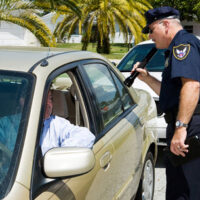What Should I Do if the Police Pull Me Over?

In Maryland, the standard for pulling someone over is reasonable, articulable suspicion that a traffic offense or a crime is in the process of occurring or has occurred. Driving under or over the speed limit, with equipment violations like a broken headlight or taillight, or committing a traffic offense, such as failure to signal, or appearing to be driving under the influence, are all likely to meet this threshold.
If you’re stopped while driving, it’s important to remain calm and pull over as soon as it is safe to do so. Turn off the car, turn on the over-head light, open the window, and then remain in your seat with your hands on the wheel. Be prepared to show your driver’s license and proof of insurance upon request.
Do I have the right to remain silent?
You and any passengers in the car have the right to remain silent. In order to avoid confusion, it is advisable that if you wish to invoke your right to silence, you state it at the outset of the interaction. We advise our clients to politely decline to answer any questions, but not to be confrontational as that can escalate the situation. Do not try to litigate your case on the side of the road, remain silent and contact a lawyer when you have a chance.
Can they search my car?
If the police pull you over, it’s possible they will ask for permission to look inside of your car. You can, and should, deny them this permission. There are some exceptions where police may still be able to search your car without your consent, such as when the officer has probable cause to believe there is evidence of a crime in your vehicle (for instance, if you were pulled over on suspicion of DUI and the officer can see a liquor bottle in view, or if they smell the odor of marijuana emitting from the car). Officers may also search your vehicle without consent in order to ensure their own protection, and if they’ve placed you under formal arrest and the search is related to that arrest.
What if I am Arrested?
It is never advisable to resist arrest, even if you think it is unfair or illegal. Instead, state that you wish to remain silent and ask for a lawyer immediately. You do not have to give any explanation and will not be required to provide payment to speak to a lawyer. If you cannot afford a lawyer, you have a right to a free one. Do not make any statements to the police or try to convince them not to arrest you. Once they have made that decision there is nothing you can say to change their mind and you will most likely end up damaging your case.
The experience of being stopped or arrested by the police can be stressful and overwhelming, but it’s important to remain calm, even if you believe you are being treated unfairly or that the officers’ actions are illegal. Police misconduct is unlikely to be successfully challenged or resolved in the same moment it is occurring. However, if the underlying search or arrest is later found to be unreasonable, all evidence obtained as a result of it may also be inadmissible. Vehicle searches and arrests are successfully overturned all the time, so try to remain calm, say no more than necessary, and contact a lawyer as soon as you are able.
If you believe your rights have been violated, contact a La Plata & Waldorf criminal defense attorney with experience in illegal stops and vehicle searches at the Law Offices of Hammad S. Matin, P.A. We’ll assess your specific circumstances and help get the best possible outcome for your situation. Contact us today to schedule a consultation.
